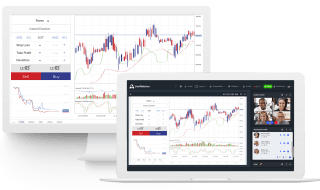Data aggregation is a crucial technological capacity in the financial services sector that helps organizations compile and standardize financial data from many sources. This procedure helps firms and consumers make well-informed decisions and practice strategic financial management by offering a thorough financial perspective. The field of financial data aggregation has seen tremendous developments with the introduction of cutting-edge technologies and developing approaches, which hold the potential to improve data accuracy, user experience, and security.

Emerging technologies shaping data aggregation
Numerous new technologies are influencing the most recent advancements in financial data aggregation. The precision and depth of data collection and analysis are being enhanced through advanced analytics, artificial intelligence, and machine learning. The infrastructure required to handle enormous volumes of data with increased scalability and accessibility is being made available by cloud computing. In addition to improving data aggregation efficiency, these technologies have enabled data to be seamlessly integrated across various financial platforms and applications.
The role of news API in financial monitoring
In this field, one notable breakthrough is the application of a news API used for financial monitoring. This technology acts as a conduit, bringing together in real-time a variety of financial news and information from multiple web sources. These APIs can extract pertinent financial news and insights that may influence markets and investment decisions by using complex algorithms and filters. Incorporating real-time news aggregation into financial data services offers investors and analysts a perspective of the financial scene, essential for promptly and intelligently arriving at judgments.
Improving user experience and accessibility
Accessibility and user experience have also profited from these developments. The user-friendly interfaces of contemporary financial data aggregation systems make it simple for users to explore and comprehend complex financial data. The aggregation services are now more widely available and serve a wider range of users, including non-financial experts. The significance of user-centric designs in financial applications grows as financial data gets more entwined with routine decision-making.
Enhancing data security and privacy
Data security and privacy are crucial in banking. Modern data aggregation methods include robust authentication and encryption to protect financial data. Regulatory compliance and data governance are also prioritized to ensure data aggregation techniques comply with international standards like PCI DSS and GDPR.
Integration with fintech and banking ecosystems
Financial data aggregation is increasingly integrated into banking and fintech ecosystems. Integration lets customers see their entire financial life in one place, creating a more unified financial environment. Banking, investment, and fintech firms are harnessing pooled data to provide individualized financial advice, automate investment plans, and provide predictive financial insights, transforming how consumers and organizations use financial services.
Conclusion
Thanks to technical advancements that have the potential to completely transform how financial data is gathered, examined, and used, the subject of financial data aggregation is developing quickly. These developments are raising the bar for financial intelligence, from using news APIs for real-time financial monitoring to the smooth interaction with the fintech sector and the emphasis on improving security. As time goes on, these advancements are likely to continue to have a big impact on the financial sector, which will give businesses and individuals access to better financial tools and insights.



